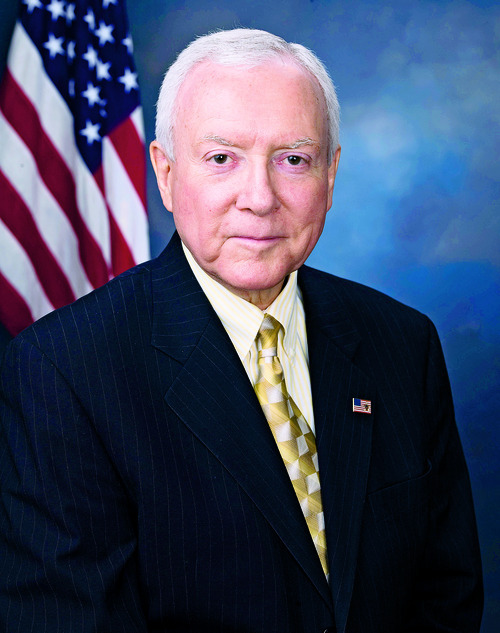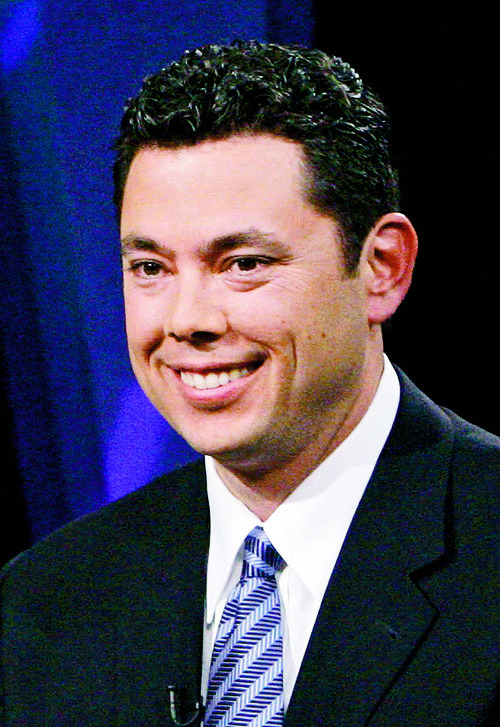This is an archived article that was published on sltrib.com in 2011, and information in the article may be outdated. It is provided only for personal research purposes and may not be reprinted.
Washington • Dozens of major political players and deep-pocketed donors have backed both Sen. Orrin Hatch and Rep. Jason Chaffetz in recent years, but if the two become locked in a campaign showdown, those supporters could be forced to pick a side.
No sector is likely to feel this as acutely as the makers and sellers of nutritional supplements. How they break could have a major impact on Utah's next Senate race.
Do they back Hatch, a powerful six-term senator and their undisputed champion for the past two decades, even though he is nearing the end of his career? Or do they support Chaffetz, a former industry executive and fast-rising political star with no seniority?
"The people I've talked to in Utah have said it is going to be a difficult one for them," said Peter Zambetti, a leader in two supplement trade groups and an executive at Capsugel, a capsule manufacturer.
The major supplement companies in Utah have also debated the potential political battle, said Loren Israelsen, who leads the United Natural Products Alliance (UNPA).
Israelsen has informed member companies that his trade group would stand behind Hatch, even if they individually decide to go in a different way. He helped Hatch draft the 1994 law that now governs the sale of supplements. Israelsen also employs Hatch's former chief of staff, Patricia Knight, as a Washington lobbyist.
"We, as UNPA, will support who brought us to the party," he said. "We have a great sense of respect for what the senator has done and continues to do."
Zambetti has come to the same conclusion.
"As far as I see it we owe Hatch for the decades of work he has done for the industry," said Zambetti.
While the supplement trade groups have largely lined up behind Hatch, some company executives argue that it's time to plan for the long term.
"I've seen Orrin Hatch do a lot of good for us but now is the time for new leadership," said Karl Lifferth, a vice president at Nature's Way in Utah County who has been active in Republican politics. "Hatch has served his time and done a good job, but the future is with Jason."
Bruce McMullin, of Sibu Beauty, a Salt Lake based supplement and beauty-product company, also said he could support Chaffetz or another challenger as long as they support natural products. He thinks Hatch has served long enough and that it is in the best interest of the state to make a change.
"Selfishly, though, I would like to have him stay there forever," McMullin said.
Chaffetz, 44, isn't a Senate candidate just yet, but he said he's considering a run and in recent months has attempted to draw contrasts between his views and those of Hatch, 77 — but not on this topic. Chaffetz said he couldn't deny that Hatch has been the industry's go-to guy in Congress. He also said he applauded Hatch's work in the area.
The two-term congressman, and co-chairman of the House Dietary Supplement Caucus, said if he were to become Utah's next senator he would pick up right where Hatch left off.
"If I decide to run, and that's a big if, people concerned about that industry won't lose anything policy-wise," said Chaffetz. "It is a very important industry in Utah."
If he does decide to run, Chaffetz may need to shake up his fundraising strategy, especially if people likeIsraelsen and Zambetti persuade their colleagues to stick with Hatch.
In all of Congress, Hatch tops the list of campaign contributions from supporters of the supplement industry, while Chaffetz comes in at No. 2,according to the Center for Responsive Politics.
The Salt Lake Tribune went line by line through campaign finance reports in 2009 to 2010 uncovering much more supplement-related cash than what is in the Center's tally. The Tribune found that Hatch received slightly more than $100,000 connected to the supplement industry in the past two years, while Chaffetz claimed slightly more than $80,000.
While the amounts are not too far apart, their impact on each politician's overall fundraising is vastly different. Hatch's supplement donations account for less than 4 percent of his fundraising total, largely because he receives so many contributions from energy companies, financial firms and doctors' groups. In contrast, Chaffetz has fewer donors to draw from and as a result his supplement contributions account for at least 12 percent of his total.
Chaffetz is likely to hold on to some of those donors, such as the executives at Nu Skin International where he worked for 12 years, but he may need to branch out as he seeks the money for a statewide race.
Hatch's campaign manager Dave Hansen said the senator would continue to press his case to supplement supporters angling for financial support and volunteers in preparation for a potential challenge from within the Republican Party.
"We are going to make an effort to involve as many of our supporters in that industry as possible," he said.
Hatch would either need to best a GOP challenger in the state Republican convention, which doesn't necessarily require a high-dollar campaign, or in a June 2012 primary, which could be expensive.
No matter which way it goes, Hatch has the support of John Gay, the executive director of the Natural Products Association (NPA).
"We will support him as long as he is in this race," said Gay. "I think the industry as a whole is already lined up behind Senator Hatch and will continue to be so. We would not turn our back on someone who has been such a good supporter of us."
The NPA is the industry's largest trade group and in the past year has sent a campaign check to both Hatch and Chaffetz. Gay wants to keep it that way.
"We think Chaffetz has been a good advocate for us in the House. We hope he continues to be."





